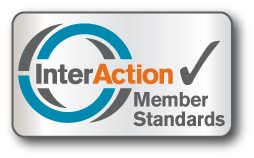Name of Project: Malaria Free Society Campaign
2014
Background:
The goal of “Malaria Free Society Campaign” is to empower families through grassroots malaria education.
Malaria is a leading cause of morbidity and mortality in southern Ethiopia. The majority of households now have at least 1 bednet but over 40% are not using them. The most cited reasons for lack of net use include too torn, dirty, or unsure how to use properly.
WEEMA International and Bobi Spilker have joined together to fight malaria in southern Ethiopia. WEEMA’s Always With Hope Malaria Free Society campaign aims it reduce the rates of malaria cases through prevention education, with emphasis on proper net care and repair.
Bobi is passionate about preventing malaria. She explains, “As I rocked my sick sweet daughter through the night for months after I came home, I knew I had to give back to Ethiopia, a place that gave me so much. Then when I began to rock my youngest through the nights, I knew in my heart I had to fight malaria. I had to do something right there where my children were born.”
Community Involvement:
This project educates and mobilizes at the grassroots level utilizing the health extension program including health extension workers, community health organizers (called “Health Development Army”), and local neighborhood leaders. The main teaching techniques are via behavioral change communication and community conversations, two interventions which have proven to be successful in the area.
Objectives:
- Increase LLIN (long lasting insecticide treated net) utilization in Hadero Tunto Zuria Woreda through improving households’ and communities’ knowledge on malaria transmission and protecting nature of LLIN against new infection.
- Improve treatment-seeking behavior of mothers/caretakers of under-five children in Hadero Tunto through enhancing malaria/fever recognition and treatment compliance using innovative and interactive communication approaches.
Outcomes:
- 40 local government leaders trained on facilitative supervision, monitoring and evaluation specific to anti-malaria initiatives
- 40 “Health Development Army” community volunteers trained on basics of malaria, community conversation skills and participatory methodology
- 49 Health Extension Workers trained on malaria prevention and control, with emphasis given to behavior change communication (BCC) strategies
- Conducted educational workshop for 450 community leaders (“1-to-5 network” leaders)
- Conducted educational workshop for 64 kebele level administrators
- Posted 3 educational billboards and publicized 7 educational radio sessions to promote malaria prevention among households in the area
Impact:
- 60,000 individuals reached with the billboard and radio messaging
- 49 Health Extension Workers trained with increased knowledge and skills for ongoing malaria prevention
- 40 Health Development Army and 450 community volunteers received new instruction to integrate malaria education and prevention in their routine activities
- 104 government officials at various levels educated to support malaria prevention activities




